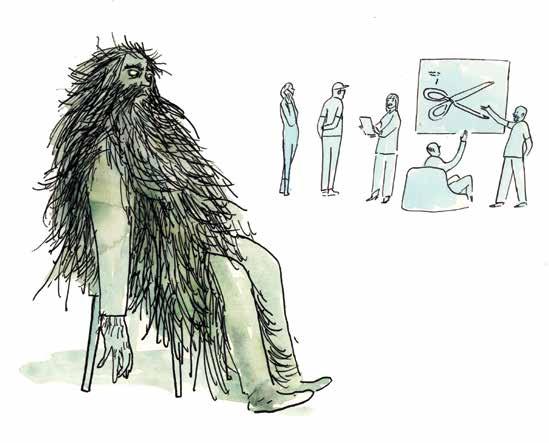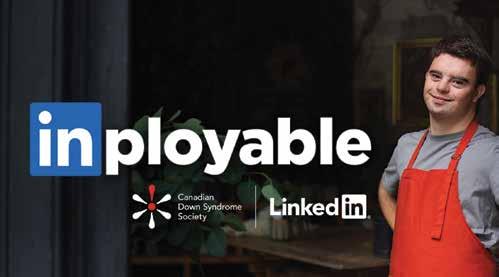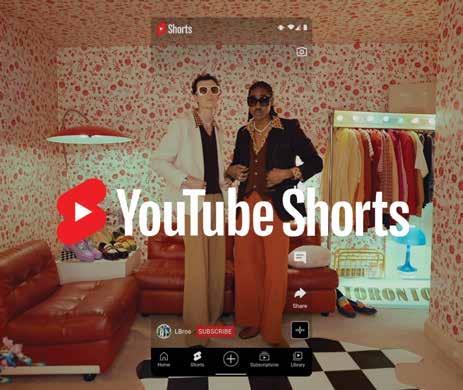
5 minute read
Building brands with better data
Data and privacy have been foremost on the minds of the industry, and it’s not just because of innovation. The space is one undergoing massive change, be it because of new regulations (including Bill C-27 at the federal level, as well as Quebec’s Law 25 and British Columbia’s Bill 22) or the pending death of cookies transforming how ad targeting works at the most basic level. This, of course, requires a lot of innovation to adapt, be it entirely new targeting methods or concepts like synthetic data and clean rooms to manage data and find insights in a privacy-safe way. But it is also leading many brands to rethink how they’ve used data in the past, and if there isn’t a better and more rewarding way to put that info to use.

The dust is far from settled, but those in the know have been thinking and testing and working on new solutions for long enough to provide their insights on what to expect. Strategy recently gathered a group of marketers and media agency execs to consider the challenges and opportunities to be found in this new dataand privacy-first world.
MODERATED BY JOSH KOLM, EDITED BY CHELSEA CLARKE
The big looming change to how advertisers use data is cookie phase-out. Having seen and tested a lot of the post-cookie options, do you have any major concerns?
Gautham Pingal, EVP, performance and innovation, EssenceMediacom: I’ve made peace with the fact that this is going to be ambiguous for a while. Initially, we were waiting for the market to step up with more identifying solutions, but it moved at a snail’s pace, so we’ve started testing out different concepts by ourselves. I wish there was a more structured approach, and more time and options. We seem to be doing it like a bit of an underground project and waiting for someone to come and tell us, “This is probably the better way to do it.”
Derek Bhopalsingh, EVP, platform media, Publicis Media: At first, everyone had their foot down on the pedal, and then it got delayed, delayed again, delayed again. So everyone has taken their foot off the gas, which isn’t the right thing to do. One of the biggest challenges you’ve also had is a lack of consistency. It’s not as much about performance as it is our ability to measure and understand that performance. We’re seeing massive deltas, and for a lot of our marketers, those deltas aren’t acceptable, because they’re not able to quantify the return on investment. There’s not enough aggressiveness in the market, especially within Canada, to really nail down solutions.

Christine Smith, director of marketing, Hyundai Canada: We have the added wrinkle in automotive of exceptionally low inventory, so our low funnel is a little screwed up right now and doesn’t convert the same way. Sometimes there’s a long delay, sometimes that delay means that there’s a lack of a conversion and has nothing to do with the effectiveness of the advertising. But we’re definitely not seeing any kind of clear winners for solutions. We’re trying to keep a constant test and learn because we do know that we are going to have to completely recalculate all of our KPIs. If you have a year-over-year drop all of sudden, you’re going to have to explain it.
Emma Eriksson, VP of marketing and wellbeing, Kellogg Company: A lot of CPGs are still in the initial phases of really figuring out how to leverage data in the best possible way. We’re still building our use cases for future sales, so we have been focused on gathering more high-quality first-party data and doing a bunch of testing to add value to our targeting, retargeting and personalization. We don’t have the problems of having to reexamine established KPIs because we are still building for the new world.
Bhopalsingh: Hey, that puts you ahead of a lot of people...
Cookies aside, are any of the proposed solutions bringing any benefits you had been hoping for anyway?
Brian Cuddy, SVP, responsible media solutions, Cossette Media: Caring about the content is a big one that we lost in the digital attribution era. Targeting anyone at the cheapest cost you can possibly pay has resulted in a lot of problems. I think going back to smarter models that use algorithmic approaches to measurement will also show what’s more influential, and take some of that spend away from more nefarious places.

Smith: It’s added rocket fuel to our desire to integrate our data more effectively. We’ll probably place our biggest bet on a firstparty data model, but we have limitations there. We exist in a bit who our audience is. We can look at different methods of understanding where those audiences might be. But we don’t get the final sales data. We can only lead customers to the gate and leave it open. So we’re giving customers tools that will help them enjoy the RVing lifestyle so they’re informed when they get to the dealer, and that data is coming to us. We do have a digital agency, and we’re trying to get them to practice with things that will let us be more economical with spending. Because with all these new technologies emerging, the cost of advertising is going up.
Pingal: That’s my concern: is this going to add costs to what moved away from presenting all these different data sources that can’t be actualized, to putting the use case up front, which shows us a much simpler way to use that data. It also means clients don’t just come to us looking for sales, because sometimes the use case is organic brand or search keyword lift.
Are there ways data can be used in ways that aren’t just a ruthless pursuit of efficiency?
Pingal: I had a colleague summarize this as “how did we get so much more data and so much more stupid?” of a fragmented data pool. We’ve got our own data, but also dealers, franchisees, telematics data that’s in the car. Who does that belong to and how can we bring it all together?
Bhopalsingh: Short-termism is even more of a problem coming out of the pandemic, because we’ve got to recoup what we lost, and then we’re into further economic downturn. It’s created this hyper focus that we saw in and after 2008. Folks forget this when costs rise and they’re not seeing conversions, but in every economic downturn, consumers are more open to brand switching and incentives. So many brands die during these downturns because they’re so focused on short-termism. Yes, you have to keep running a business, but there needs to be a balance between short-term sales goals with driving that reason to believe, especially in an economic downturn where consumers aren’t as loyal as they used to be.
Cyrus Irani, director of digital strategy, Go RVing: We’re in a similar position because we are a marketing arm. The benefit is we can test against predictive models, because we know

I’m already doing? Is this data, viewability and solution layer going to be another incremental cost that we need to eat within our marketing budget to get more efficiency? I keep thinking to myself: at what point is this going to stop? What I’m finding really interesting, and what we’re telling our clients, is that there’s just too much data noise out there, so let’s prioritize use cases. We’ve
Smith: What’s the old adage? ‘There’s nothing like a crisis to give you an opportunity’? One blessing of supply chain challenges is that it allowed us to shift our approach. Instead of optimizing our media into a corner, we could turn our attention to optimizing creative. We’re following sales-oriented KPIs, but also brand metrics and connecting that to the activities we’re doing. At some point we’re not going to be able to make our systems any smarter, so we had to open the aperture on what we









